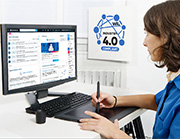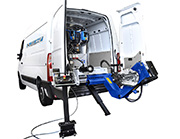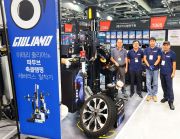
Self-driving cars are no longer a futuristic idea. Many major automakers are already working on fully self-driving cars that don’t require human intervention at all, so a driverless future seems more and more likely.
While many automakers are striving to create and implement fully self-driving technology, innovative advanced driver assistance systems (ADAS) are already being incorporated into a number of modern cars and are helping drivers in driving process, increasing car and road safety. Safety features are designed to avoid collisions and accidents by offering technologies that alert the driver about potential problems, or by implementing safeguards and taking over control of the vehicle. Adaptive features may automate lighting, provide adaptive cruise control, automate braking, incorporate GPS/ traffic warnings, connect to smartphones, alert driver about other cars or dangers, keep the driver in the correct lane, or show what is in blind spots.
While Google has been investing heavily as a pioneer in self-driving cars and has been testing its prototypes on public roads, promising to start selling self-driving cars by 2020, the competitors are not sitting idly by. Google is far from alone in its pursuit of autonomous driving.
Thanks to LIDAR (Light detection and ranging) system, Ford is able to offer a car that does not require human intervention. Four scanning infrared light sensors scan the road ahead 2.5 million times per second, bouncing infrared light off everything within 61 meters (200 feet) to generate a real-time 3D map of the surrounding environment. Ford's onboard computer can analyze the data and make decisions.
This year, Mercedes-Benz has also presented its vision of the driverless future: Mercedes-Benz F 015 Luxury in Motion concept car ensures optimum safety and supreme comfort for its passengers, offering most advanced car technologies (high-definition screens, featured in each panel, are controlled through touch screen systems and are designed to recognize eye movements).
"We are planning to take the big leap required for getting from technically feasible to commercially viable," says Dieter Zetsche, Daimler AG chairman and head of Mercedes-Benz Cars.
Moreover, according to rumors, Apple as well has been working on a self-driving electric car. Project Titan might come to light soon. The Californian giant is said to have hired a team of professionals from the automotive industry and is considering the Concord Naval Weapons Station (a military base about 50 kilometers from San Francisco) as a test bed for new cars. It is not yet clear if Apple is aiming to produce a real car (iCar) or "only" to sell technology to automakers (as it was the case with CarPlay).




